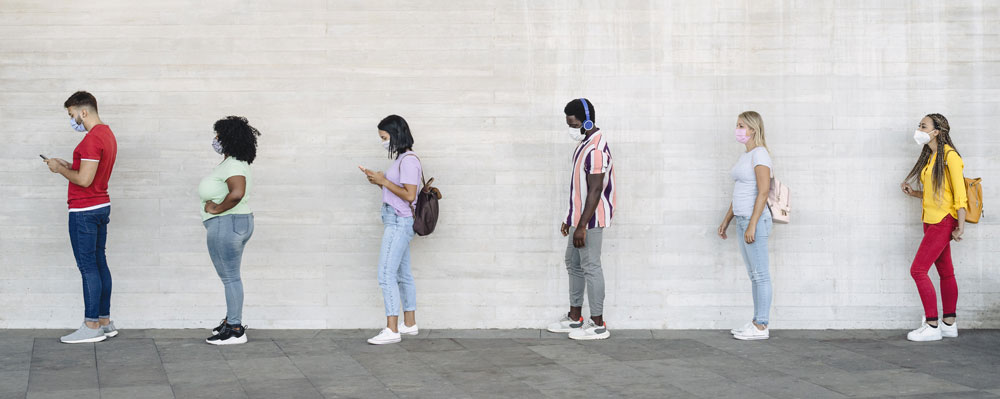As we prepare for the flu season, the novel coronavirus is still spreading in our community. Fortunately, many of the same prevention measures you have been taking to protect yourself and your family from COVID-19 will help to protect you from the flu.
And while a flu vaccine will not prevent COVID-19, it will reduce the burden of illnesses due to flu, including hospitalizations and deaths. Getting vaccinated against the flu is an integral part of our public health strategy to ensure we conserve our medical resources and do not overtax the health care system as we continue to respond to the COVID-19 pandemic. This year it is more important than ever that you get a flu shot to protect yourself, your family, and our community.
Continue to take everyday steps to protect yourself and your family from respiratory viruses.
- Wear a mask when you are in public or around people who do not live in the same household as you do. Choose a mask that is made of two or more layers of washable, breathable fabric, or use a disposable one. Make sure it completely covers your nose and mouth and fits snugly against the sides of your face without any gaps. Do not place a mask on a child younger than 2 years old, or people who cannot remove their mask without assistance.
- Wash your hands frequently with warm running water and soap. If running water isn’t available, use an alcohol-based hand sanitizer. Wash your hands before you put on your mask.
- Stay home when you are sick. Stay home from work, school, and public places.
- If you think you have been in contact with a person who has COVID-19, get tested. Stay home for 14 days after the last day of your possible exposure.
- Avoid touching your eyes, nose, mouth, and mask.
- Practice healthy habits. Clean and disinfect frequently touched items. Get plenty of sleep, be physically active, drink plenty of water, and eat healthy meals.
The beginning of flu season also signals the beginning of the holiday season. Since the start of the novel coronavirus pandemic, families have made tremendous sacrifices to keep their loved ones safe. This holiday season, people will understandably want to reconnect with family and friends. It will be important to make decisions based on what is happening in the community at the time you plan to host or attend an in-person gathering.
Also consider your risk, the risk of those who share your home, and the risk of those you may be inviting into your home or visiting. Are you or someone you live with at increased risk for severe illness from COVID-19? People at increased risk should avoid in-person gatherings with people who do not live in their household.
Families who are planning get-togethers can host smaller gatherings with no more this season with no more than 10 attendees and take steps to lower the risk for people who will be at their holiday events. The fewer people who must travel to a destination, the lower the risk to the whole group. Ensure everyone who attends your event wears a mask and adheres to social distancing guidelines. Provide disposable masks for guests who may forget to bring theirs. Encourage frequent handwashing, use disposable utensils, and avoid potlucks and self-serve drink options. Anyone who is sick, experiencing symptoms, or who has had contact with someone who has COVID-19 should stay home. Provide a list of safety guidelines to your guests prior to the event, so they are aware of the protocols before arrival.
Weather permitting, host outdoor activities as much as possible. Take advantage of Southern Nevada’s climate and host an outdoor holiday dinner. If you will be a guest at an event, check with the host or event venue on their measures to ensure attendees will be wearing masks and social distancing guidelines will be followed.
This holiday season will be different. The best gift you can give your family and friends is the gift of health. For more information about COVID-19 and updates is available on the Southern Nevada Health District at www.SNHD.info/covid.


